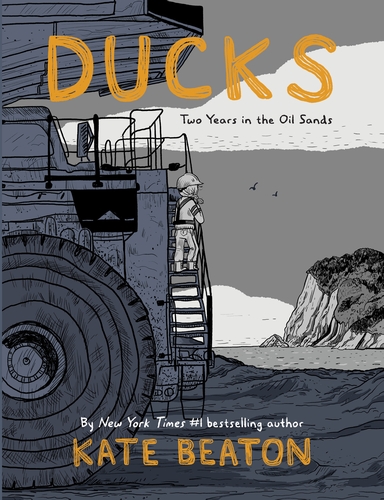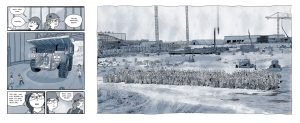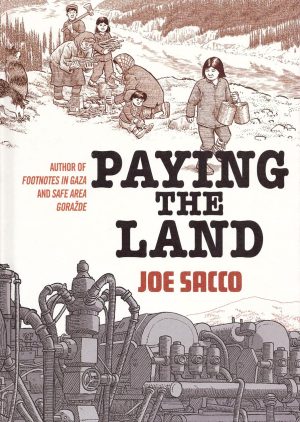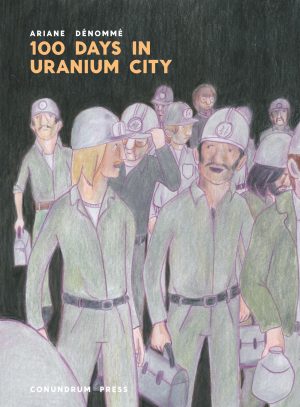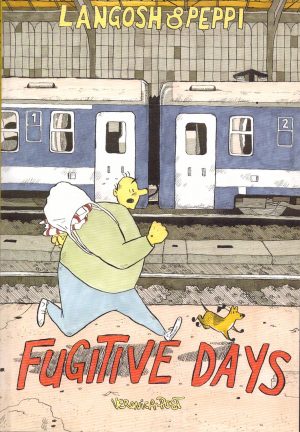Review by Woodrow Phoenix
Anyone who has read either of Kate Beaton’s books Hark! A Vagrant! or Step Aside Pops, will be familiar with her intensely witty and well-observed style of literary joke telling. It will come as no surprise that she is a very deep thinker, as it’s obvious both from the way she constructs her smartly ridiculous strips and the insightful commentaries she includes about their historical origins. Even with this prior knowledge, Ducks: Two Years in the Oil Sands will not be the book they might expect. It’s an autobiographical account of what happened after Beaton graduated from university with a combined history degree and thousands of dollars of student loans hanging over her. There were no job prospects in her hometown, but there was one path that was traditionally trodden by men from all over the economically depressed areas of Canada: to take a job labouring in the oil mining industry. Relentlessly hard, grindingly soulless grunt work but so highly paid that she could erase her debts in two years.
North-eastern Alberta, where OPTI Canada, CNOOC Petroleum, Syncrude and other companies operate is a freezing blasted wilderness, being slowly poisoned by the extraction of bitumen from the largest known reservoir of crude bitumen in the world. The camps where the workers live are barely better than prisons. The pressure cooker all-male environment is so far from civilisation both literally and psychologically that the very few women who find themselves in this lost, lonely place can never relax for a moment. What Beaton relates in this book is a desperate, frequently terrifyingly bleak existence for her as a dehumanised piece of meat for hungry men to try and chew on. No matter where she is, in the ‘tool crib’ where she fills equipment orders, in canteens or out in the camp, the sexual harassment is continuous, from every man she encounters sooner or later. “I try to remember that there are a lot of men who just never speak to me, or never bother me,” she says, struggling with the constant pressure to keep herself safe. “I don’t even remember them because they are never in my face.” It is a incredible testament to Beaton’s intelligence and compassion that her anger at what happened to her doesn’t focus on the individuals that harmed her but locates the problem in the culture of institutionalised exploitation that warps everyone it touches.
The ugliness of her time in the oil sands is reflected in the imagery. To enable the production of the vast numbers of drawings needed to tell a story 420 pages long, exuberant stylish cartooning has been sidelined for a reduced, bluntly efficient mode that delivers the information plainly and effectively. There is none of the fizzy elegance that makes Hark! A Vagrant! so enjoyable to look at, but that graphic playfulness would not be appropriate here anyway. While the people are simplified and minimally drawn, samples of what Beaton can do with a pen can be seen in the detailed splash pages showing the environment of the camps, skilfully rendered giant machines and vast ruined landscapes, which drive home what dreadfully exacting and inhospitable conditions the workers in the oil sands have to exist in. Ducks: Two Years in the Oil Sands is a compelling and terrible read. It will depress you. That’s why you should read it.
